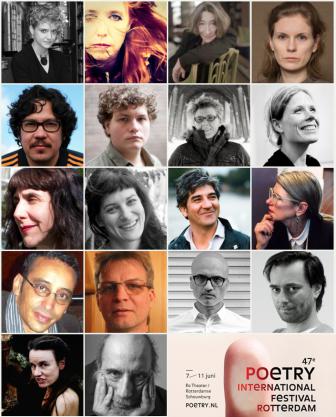Article
Editorial: May 2004

January 18, 2006
Eastern Europe is particularly well-represented this issue, with strong new work coming from the Ukraine, Slovenia and Croatia. The latter chose two poets representing two very different sides of Croatian poetry. {id="1762" title="Tatjana Gromača"} represents the youngest "bold new voice" in poetry, whereas {id="1757" title="Mario Susko"}, sometimes called an existential, hermetic poet, belongs to an older generation. Susko moreover is a bilingual poet, writing in English as well as in Croatian, and rewriting his poems in the other language too. In this issue, you can find examples of all three: poetry originally written in Croatian, in English, and Croatian poems rewritten in English.
Another noticeable new poet is Ukrainian poet and publisher {id="5521" title="Ivan Malkovych"}. Malkovych (1961) stopped writing poetry seven years ago. This is not uncommon in the Ukraine. Our editor Kateryna Botanova talks about the political background to this phenomenon in her introduction. Oddly enough, Malkovych is not the only poet in this issue to have taken his recourse to silence. Greek poet {id="2456" title="Manolis Anagnostakis"}, a former resistance fighter who was condemned to death and spent many years in exile, has not written a line of poetry in the last 45 years.
The Greek and Israeli sections of PIW are particularly rich again this issue, presenting three poets each and, as usual, a wealth of background material. It is difficult to know what to highlight here, in this embarras de choix.
Finally, we’d like to draw your attention to the Moroccan magazine, which is devoted to Moroccan women’s poetry this issue, concentrating on the work of {id="3819" title="Fatiha Morchid"}. Before we take our leave, it seems only right to cite her poem ‘Absence’:
Do not say "absence tastes like madness"
Close your eyes
Wherever you are
You will find me . . .
Immovable as the sea
Wandering about
In the ebb and flow
Never absent.
These central pages of PIW will be on a light publishing schedule all through May, but to compensate, we present to you the biggest, fattest issue yet of our monthly magazine: ninety poems by thirteen poets from seven countries, including a brand-new one: India!
Although Indian poetry is sometimes thought of as the "the dowdy, low-profile cousin of the Indian novel", as our editor Arundhathi Subramaniam puts it in her introduction to the Indian magazine, in reality India is a truly exciting country for poetry, with its wealth of languages, its venerable literary tradition and lively and varied contemporary poetry scene. You will find the work of two new poets in this inaugural issue, each writing in a major Indian language: English-language poet {id="2725" title="Keki Daruwalla"} and Marathi poet {id="2740" title="Vasant Abaji Dahake"}, accompanied by essays, an interview and other background information on their work. Eastern Europe is particularly well-represented this issue, with strong new work coming from the Ukraine, Slovenia and Croatia. The latter chose two poets representing two very different sides of Croatian poetry. {id="1762" title="Tatjana Gromača"} represents the youngest "bold new voice" in poetry, whereas {id="1757" title="Mario Sus
Another noticeable new poet is Ukrainian poet and publisher {id="5521" title="Ivan Malkovych"}. Malkovych (1961) stopped writing poetry seven years ago. This is not uncommon in the Ukraine. Our editor Kateryna Botanova talks about the political background to this phenomenon in her introduction. Oddly enough, Malkovych is not the only poet in this issue to have taken his recourse to silence. Greek poet {id="2456" title="Manolis Anagnostakis"}, a former resistance fighter who was condemned to death and spent many years in exile, has not written a line of poetry in the last 45 years.
The Greek and Israeli sections of PIW are particularly rich again this issue, presenting three poets each and, as usual, a wealth of background material. It is difficult to know what to highlight here, in this embarras de choix.
Finally, we’d like to draw your attention to the Moroccan magazine, which is devoted to Moroccan women’s poetry this issue, concentrating on the work of {id="3819" title="Fatiha Morchid"}. Before we take our leave, it seems only right to cite her poem ‘Absence’:
Do not say "absence tastes like madness"
Close your eyes
Wherever you are
You will find me . . .
Immovable as the sea
Wandering about
In the ebb and flow
Never absent.
© Corine Vloet
Sponsors














Partners
LantarenVenster – Verhalenhuis Belvédère

